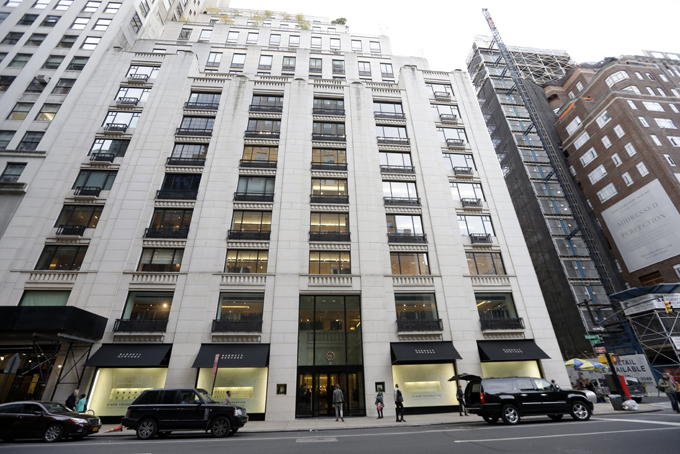
Pedestrians pass Barneys New York department store Monday, Oct. 28, 2013, in New York. (AP Photo/Frank Franklin II)
The usual scenario involves suspicious glances, inattentive clerks or rude service — not handcuffs.
Yet when a Black teen said he was wrongly jailed after buying a $350 belt at a Manhattan luxury store, it struck a nerve in African-Americans accustomed to finding that their money is not necessarily as good as everyone else’s. Shopping while Black, they say, can be a humiliating experience.
Much attention has been paid to the issue over the years — Oprah Winfrey complained that a Swiss clerk did not think she could afford a $38,000 handbag, and even President Barack Obama has said he was once followed in stores. But according to shoppers interviewed Monday, many people don’t recognize how prevalent retail discrimination is, and how the consistent stream of small insults adds up to a large problem.
“It’s one thing if you don’t understand. But don’t ever tell me it doesn’t happen to me,” said Natasha Eubanks, who shops often at high-end stores in New York City. “You can’t assume it doesn’t happen just because it doesn’t happen to you.”
Sometimes, Eubanks said, it takes clerks more than five minutes to simply acknowledge her presence. Or they brush her off after a token greeting. Or they ask her question after question: “You’re a Black girl up in Chanel. They want to know what you’re doing here, and what you do for a living.”
She says she has dealt with this type of treatment at least 20 times in New York City.
“I don’t look like that typical chick who walks into that type of store,” said Eubanks, owner of the celebrity website theYBF.com. “It feels differently than when you go into a store and are treated properly.”
Trayon Christian’s problem was not how he was treated when he went into Barneys New York — it was what happened afterward. In a lawsuit filed last week, the 19-year-old said that he bought a Ferragamo belt at the Manhattan store, and when he left he was accosted by undercover city police officers.
According to the lawsuit, police said Christian “could not afford to make such an expensive purchase.” He was arrested and detained, though he showed police the receipt, the debit card he used and identification, the lawsuit said.
After Christian’s lawsuit was filed, another Black Barneys shopper said she was accused of fraud after purchasing a $2,500 handbag, and the Black actor Robert Brown said he was paraded through Macy’s in handcuffs and detained for an hour after being falsely accused of credit card fraud.
For Yvonne Chan, the reports were a painful reminder of when she worked in a liquor store in a predominantly White Massachusetts town. Every few months someone would be caught stealing, and about half the time it was a Black person.
“You find yourself watching Black people. (The stealing) only happens once in a while, but it changes your perception,” Chan said.
Chan, a graduate student, always tried to remind herself not to act on stereotypes, but, “Like it or not, I’m going to have a preconceived notion of races from my experiences. As much as I would like to force my brain not to think like that and put everyone on an even playing field, stereotypes play a role in our society … we skew the view of people as individuals.”
Those skewed views can affect who gets arrested for retail theft, said Jerome Williams, a business professor at Rutgers University who has studied marketplace discrimination.
Many people justify racial profiling by saying that Black customers are more likely to steal. But one study has shown that White women in their 40s engaged in more shoplifting than other demographic groups, Williams said.
“The reason they don’t show up in crime statistics is because people aren’t watching them,” said Williams.